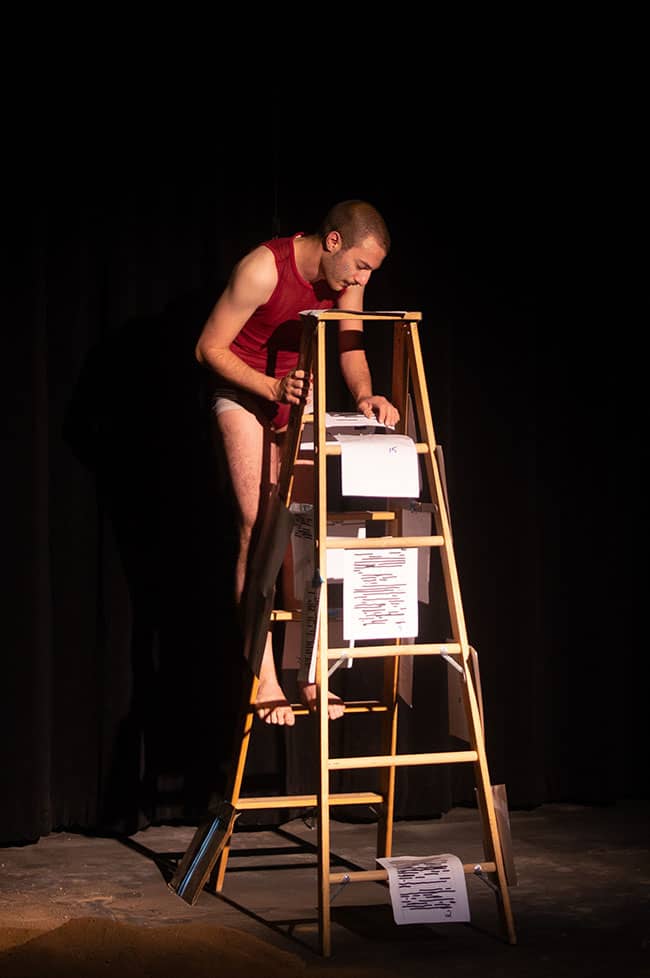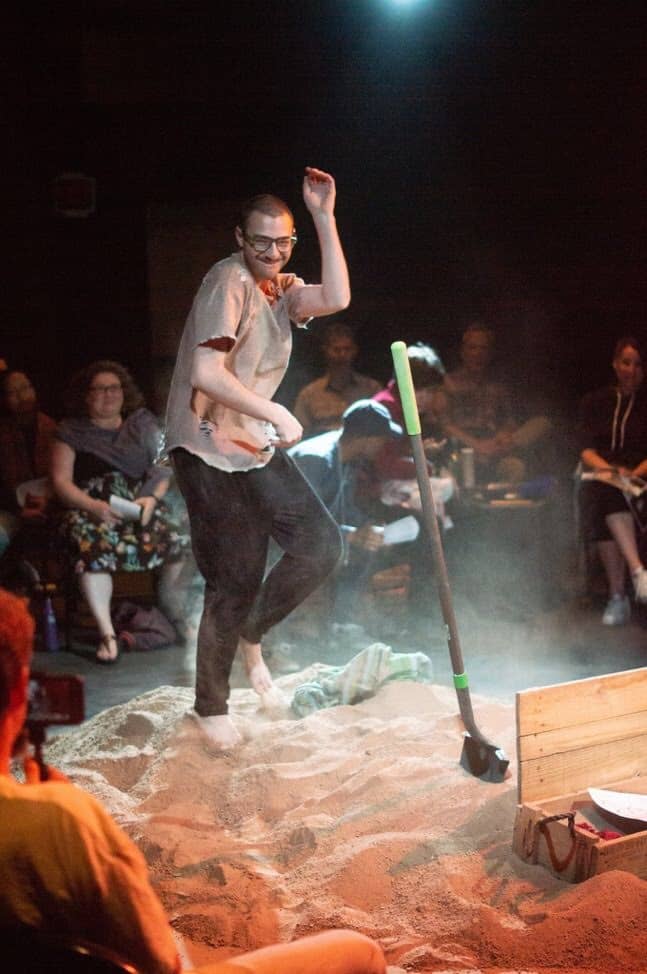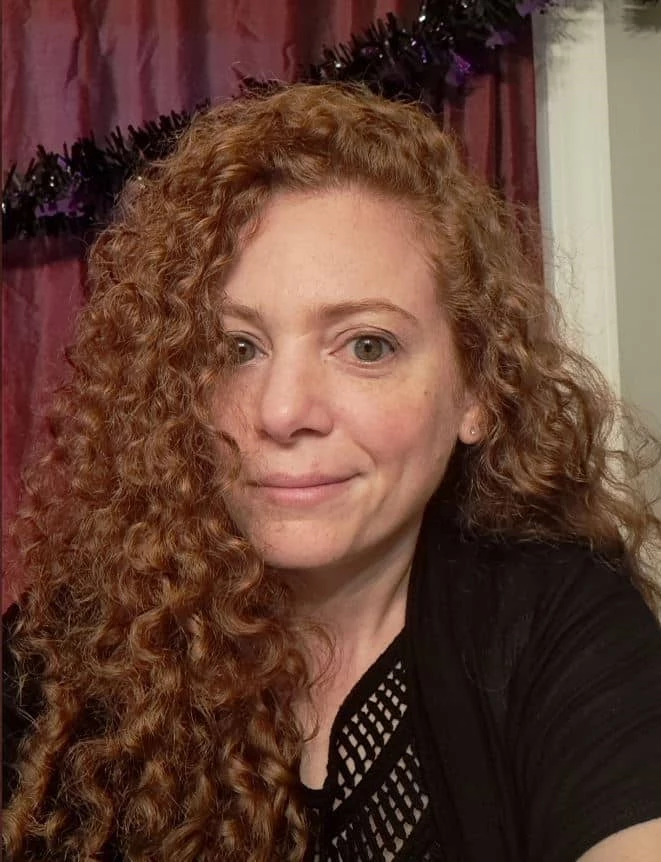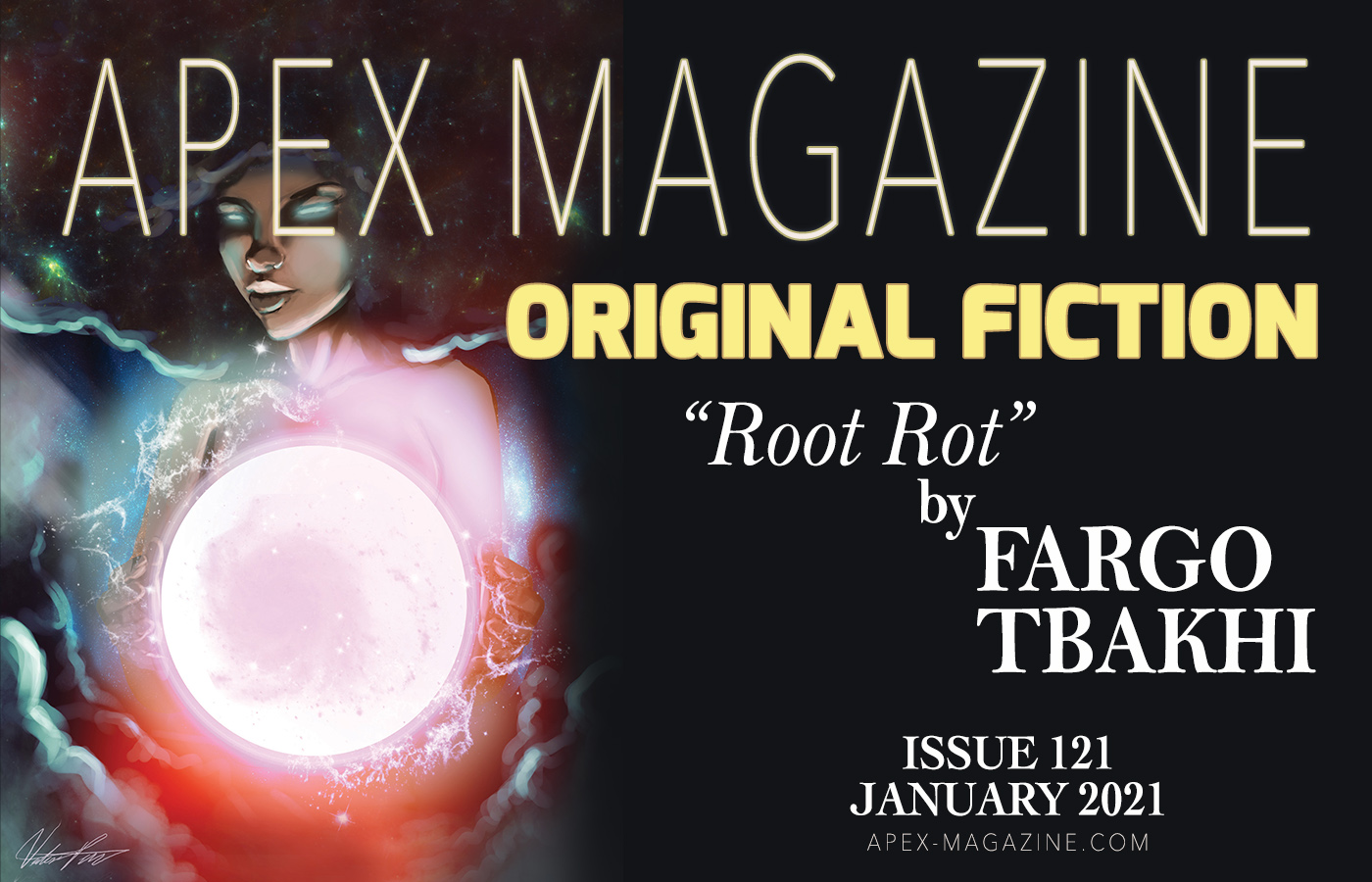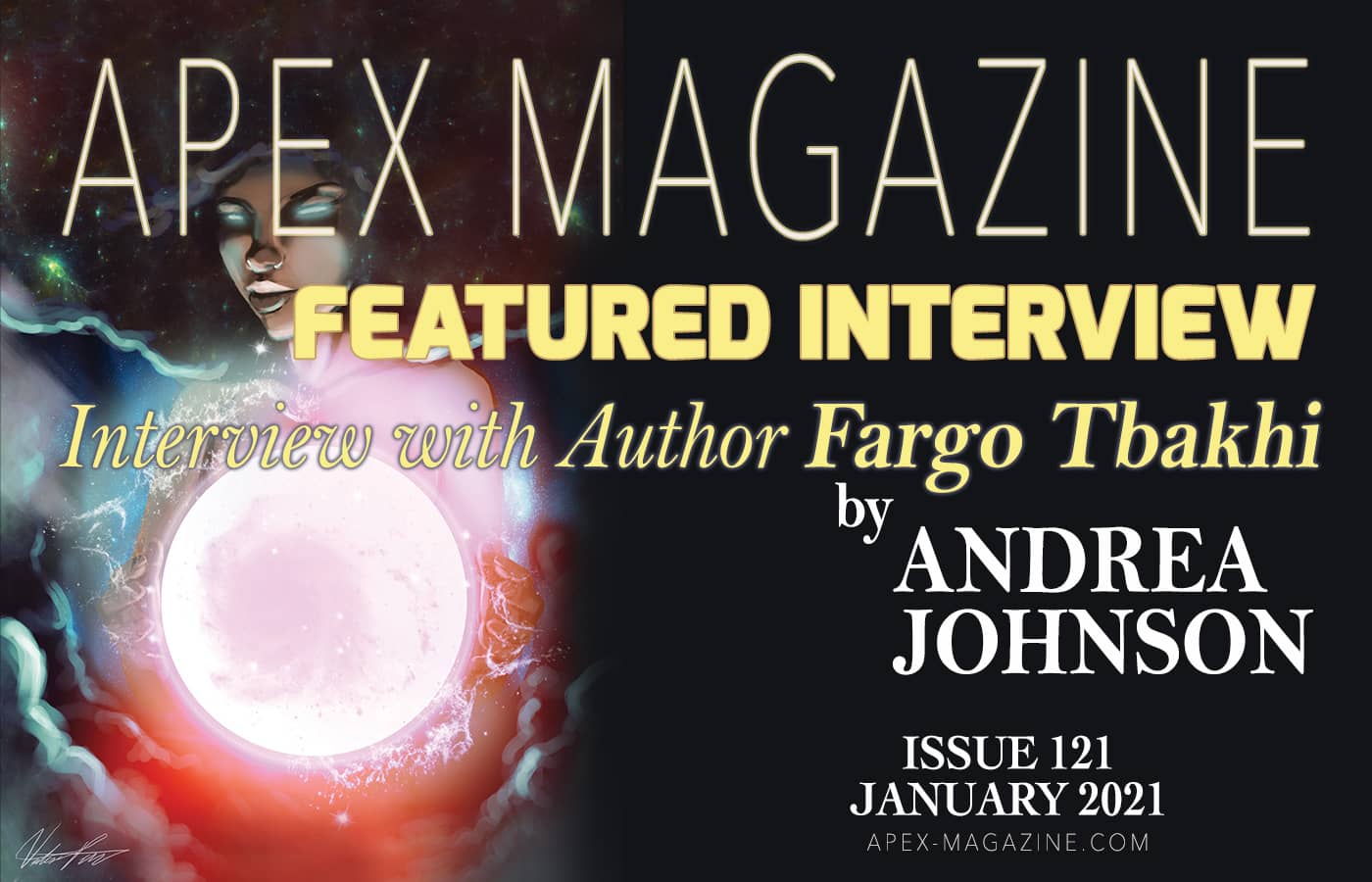
When Jason sent me this story, he said something along the lines of “this story will devastate you.” And he was right.
The first time I read Fargo Tbakhi’s “Root Rot,” my emotions oscillated between awe, fear, concern, shame, disgust, hope, and then back to concern/shame. I felt like I was looking too intimately at someone’s pain. I felt like my silence was my approval. If you have just read this story for the first time, take a few deep breathes, give yourself some space. It’s ok if you’re not ok.
And in between my ugly sobs, Tbakhi’s prose reminded me how beautiful the English language can be, with metaphors that forced me to see what I’ve been taught to avoid. Maybe, just maybe, through communication, we can seed hope and humanity. Among other things, this is a story about the fragility of hope.
“Root Rot” is a story about one possible Palestinian future and how to get there from where we are right now. In the now, when theater and other artist communities are looking for “Palestinian voices,” what voices are they actually seeking? Voices that will soothe them? Or voices that will speak a painful truth that needs to be heard? And in Tbakhi’s imagined future, will the past simply repeat itself?
You’d think by now, living in the world we live in, that I’d be prepared for how awful humans can be to each other, how quickly and easily we dehumanize each other. Maybe it says something about me that I’m never prepared for awful people. I wasn’t prepared for Derek Künsken’s Puppets and their creators in his novel The Quantum Magician, and I wasn’t prepared for the brutality of the price to cross the New Tel Aviv Civic Center. You know, had this been in some far-future space opera sci-fantasy on a non-Earth location, I would have thought the price was gross, but a little genius. But, instead, this story hit close to home. All I could see in place of the blood payment was dehumanization and brutality. And those “re-education centers” that are actually prisons? There’s no education that happens there. You are literally re-programmed to forget your language, forget your culture. In this world, your continued existence is dependent on what you are willing to give up.
Sometimes stories make me cry because I feel bad for the characters, or something tragic and unfair happens to them. Sometimes a story has finally cracked open something inside me and I can finally grieve. This story created an emotional reaction in a completely different way—these were tears of anger and shame. Am I incandescently angry at the politics and the society, and everything that happens? Oh, that is a shouty caps YES. This is a future where re-education centers don’t just re-educate and brainwash you, they literally reprogram your brain without your consent. Your native language is stripped away, along with your cultural identity. To quote my favorite podcast, This Podcast Will Kill You, “put on your angry hats, folks.”
When you leave comments on this story and talk about it online, I challenge you to leave comments that are more than just “it’s so good,” or “wow.” Fahti the botanist gave us his most intimate thoughts, his last days of hope, his desperation. We went through those days with him. Give him something in return.
The author of “Root Rot,” Fargo Tbakhi, is a queer Palestinian-American writer and performer from Phoenix, Arizona. His short fiction and poetry has appeared in or is forthcoming in Peach Mag, Strange Horizons, Glass: A Journal of Poetry, Mizna, The Shallow Ends, Cosmonauts Avenue, and elsewhere. He is the winner of the 2018 Ghassan Kanafani Resistance Arts Scholarship, and is currently involved with the Mosaic theatre of Washington DC and their Voices from a Changing Middle East Festival. He was kind enough to talk with me about the genesis of “Root Rot,” colonialist technology, Palestinian futurity and history, his solo show “My Father, My Martyr, and Me: Postcolonial Instructions for Loving the Palestinian Body,” and so much more.
You can learn more about Fargo Tbakhi and his work by following him on Twitter at @YouKnowFargo and through his website fargotbakhi.com.
Apex Magazine: What inspired this story? What were you thinking about, when you wrote “Root Rot”?
Fargo Tbakhi: I think a lot about Palestinian futurity, and about the worlds that we necessarily have to imagine in order to keep going within this one. That ability to narrate, imagine, sense, touch, and feel the future worlds in which everyone will be free is so vital. And we exercise that ability all the time—in Palestinian speculative fiction, in protests on the street, in cooking one another food, in reading each other’s work. And I found myself really needing to hold some space, personally, for those who will not make it to those futures. There’s so much emphasis placed on Palestinian resiliency, on our ability as a people to withstand endless violence and remain committed to our home and our struggle. It feels important to me to acknowledge that not all of us, diasporic or otherwise, remain whole. When we imagine freedom, I want us also to be able to imagine, to hold, to mourn, to love and attend to those for whom that freedom was not enough. “Root Rot” is the beginning of that project for me.
AM: Some stories come into a writer’s mind fully finished. Other stories start with a sentence, or a scene, or a moment, and grow from there. How did this story grow in your mind? Did it come to you as a complete story, or as a moment or a sentence, or something different?
FT: “Root Rot” actually began as a poem, one which I wrote this past April. Steven Duong has a poem called “Travel Blog,” published in Peach Magazine, that includes the line “Mercury is an Israeli settlement.” I love that poem, and that line was really compelling to me, so I thought I’d write something using it as a starting point. What emerged was a very distinct voice and character narrating their days after being released from an Israeli black site on Mercury. That poem held all the seeds of “Root Rot”: the extension of Israeli settler-colonialism to other planets, a character who’d been broken by the weight of colonial oppression and who spoke in a really particular voice. After I wrote that poem, I found that that voice was haunting me and wouldn’t let me go. And I wanted to listen to them longer, and from that listening came the story. It was really the first time I’d experienced writing that way, though so many of my favorite writers have described their characters haunting them, needing language to root into and find shape in.
AM: The security officers are the Offworld Settlement Palmach. Would you tell our readers more about who and what the Palmach was, and the effects they had on Palestinians?
FT: The Palmach was a Zionist paramilitary force who carried out the violent ethnic cleansing which created the state of Israel, including murdering civilians, burning and destroying villages, and looting property. Palmach members and leaders went on to become important political figures in early Israeli government and society, and the Palmach as a military force is very much part of the modern Zionist historiography. When I thought about the extension of the Israeli colonialist project to space, it felt natural to me that the figure of the Palmach would be revived as a security force for that project.
AM: The “toll” to enter and cross the New Tel Aviv settlement civic center is inhumanely brutal, and literally aims to physically destroy those who pay the toll. What was your writing process, both to come up with this toll, and how to write its effects?
FT: A lot of “Root Rot” is my attempt to model some of the logical progressions of colonialist technologies that already exist. Border technologies in this moment are in a race towards scientific sophistication; rather than a concrete wall, here’s a fence of electric sensors patrolled by drones. Israel is one of the leading creators of that border technology, and their border tactics (practiced and perfected on Palestinians) become the tactics of other nations. So, for instance, the border technology currently surveilling and destroying sacred Tohono O’odham land in Arizona is manufactured by the Israeli company Elbit Systems. Settler colonies learn from each other. When I was thinking of a border technology for “Root Rot,” I wanted to mirror some of the logic of the border, which attempts to maintain its own sense of respectability and legitimacy, often through its technological “sophistication.” So, to cross into the settlement civic center, you give the guards a liter of blood—but you get it back on the other side, so really, what’s the problem? Through these turns toward the biometric, the border tries to disguise its cruelty and its violence.
It also meant that I texted a friend of mine who’s a paramedic and said “How much blood could a person lose so they’d be woozy and weak but not, like … die?” Which was probably a pretty concerning text to receive out of context.
AM: You write short fiction and poetry and you are also a performance artist. How has your work on stage informed your writing, and vice versa?
FT: When I write poetry or fiction—anything that’s written specifically for the page—my aim is always to bend language until it breaks. In poetry that’s often a breaking of literal language, while in prose it might be a breaking of the social language we use to understand the world, the narratives and vocabularies that have been built to oppress. When I find that the language is bent as much as it’ll go but it still hasn’t broken, I turn to performance, which offers so many more tools and strategies for that breaking, so many new languages to try and shatter. I think it’s through those moments of break and rupture that we can glimpse better worlds, poke our hands through and feel them. Performance teaches my writing to be wilder, to move better, to be stranger and less legible. My writing gives my performance work foundations to build on, blueprints to follow and then ignore. Both writing and performance are very spiritual practices for me; they affect the world in ways we often can’t see, but which are real, and vital, and somewhere beyond the material.
AM: Your solo stage show “My Father, My Martyr, and Me: Postcolonial Instructions for Loving the Palestinian Body” was first performed in 2019, and was recently performed this past October at Shuruq 4.5 Olympia Arab Festival 2020. What was it like, the first time you performed this show in front of an audience?
FT: What a great question (these are all great questions). That show is a very personal one for me, and very vulnerable. It felt like a project that I put everything into, like I wasn’t ever going to make anything else. So much of the project of that show is a wondering around whether performance could move us toward love, could get us past the pervasive rhetoric of wrongness and criminality layered onto Palestinians. The first time I performed for an audience, I really felt some of those moments—those moments of utopia, of something like community, of possibility. There’s a moment in the show where I start to dance, and then one by one I ask every person in the audience to join me, until all of us are dancing together. When that happened the first time, and it worked, I just felt this enormous sense of possibility. It was a speculative moment, really, a moment not just of imagining a different world, but of stepping into it, getting nasty in it, sweating in it. That felt wonderful. I hope I can be dancing with strangers on a pile of dirt again soon.
AM: Along with virtual performances, you are involved with the Mosaic Theater in Washington, DC. What specific projects are you involved with, and what do you think of them? How is the theater faring, in this age of COVID shutdowns?
FT: I’ve been working with Mosaic on their Voices from a Changing Middle East Festival. This is a festival that’s been programmed at Mosaic for years (and previously at a company called Theater J) and which features plays from Middle Eastern authors. In the past, the festival has presented work on Palestine by almost exclusively Israeli playwrights and intermediaries, and this year there’s been a big shift, to a festival that centers Palestinian voices. I’m really glad to be a small part of that, and it’s been a really wonderful chance to work and create connections outside of the writing world. In terms of shutdowns, it’s been very difficult, of course. It’s kind of a cliché to say at this point, but I do believe theater exists in the collective presence of audience and performers, sharing the same space. Some of that possibility and community I described earlier gets foreclosed in a liveness mediated through the screen. But I’m excited to try and find out how we can make the most of a virtual environment!
AM: Who are some of your favorite writers, poets, or artists? Why does their work move you?
FT: Oof, so many. Too many. Solmaz Sharif. Ursula Le Guin. Marx. Zaina Alsous. Samuel Delany. Agnes Varda. Etel Adnan. Marilynne Robinson. Angela Davis. Leila Khaled. José Esteban Muñoz. June Jordan. Augusto Boal. Saidiya Hartman. Octavia Butler. Ghassan Kanafani. Mahmoud Darwish. Bertolt Brecht. Ray Bradbury.
The writers, thinkers, artists, and culture workers who inspire me are ones who have offered me new and challenging ways to understand the world around me, and what my relationship to it is or could be. Their work often literally moves me, pushes my body towards some new path or course of action, whether in this world or a different one. I think that in so many of these artists’ work, I have been reminded of the socialist and communal potential of art: to remind us of our entanglements, our dependence on each other, our capacities to care and be cared for.
AM: To close on a light note, what are some of your hobbies? What do you like to do for fun?
FT: Cooking, watching horror movies, The Muppets, needle-felting, making puppets, sending people memes that remind me of them, bicycling, comic books, talking to my friends on the phone, eating, getting and making people gifts!
AM: Thanks Fargo!







